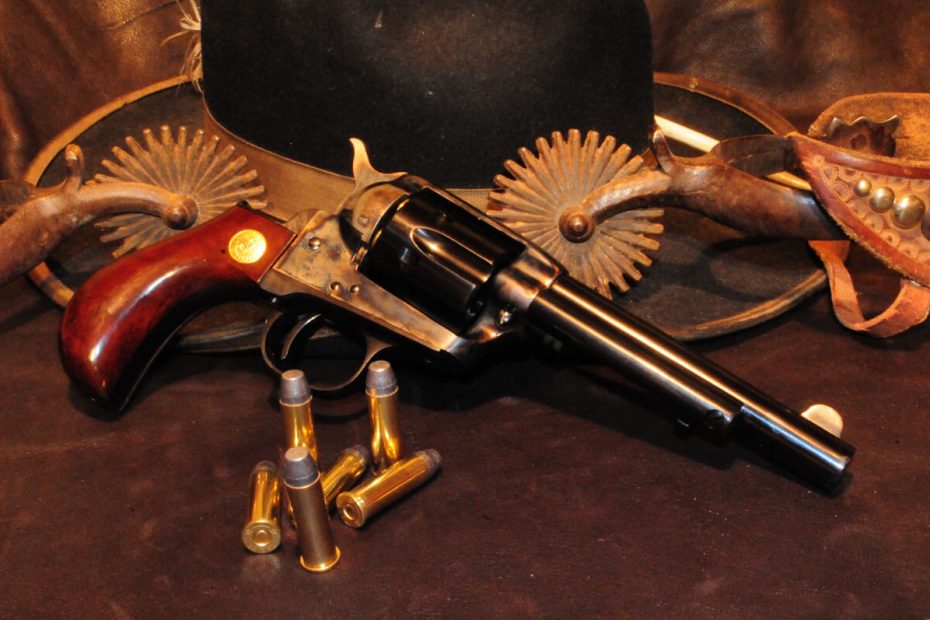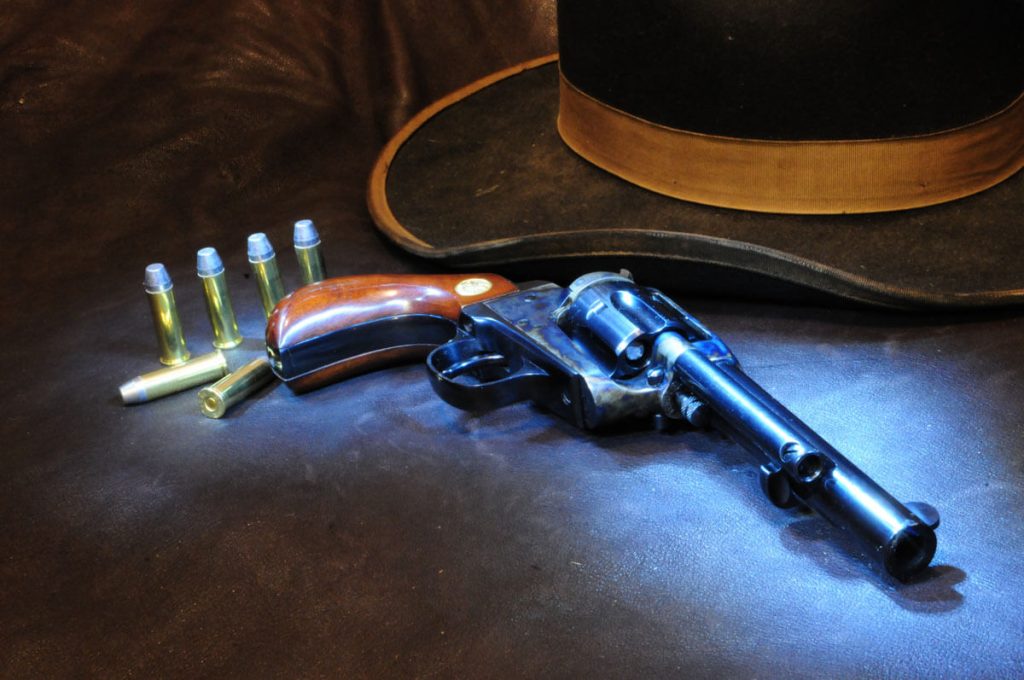
“I’m your Huckleberry!” The phrase conjures up scenes of Doc Holliday facing down bad guys, eyes gleaming and fingers gently toying with the curvaceous grips of an unusual-looking revolver. And yup! This is the gun. Close enough anyway, that you can thumb in some cartridges, buckle on the handsome piece, and say, “Wyatt Earp is mah Frayend!” Or you can just take your unusual new sixgun to the range and have an unusually good time perforating evil targets or ringing sinister steel silhouettes.
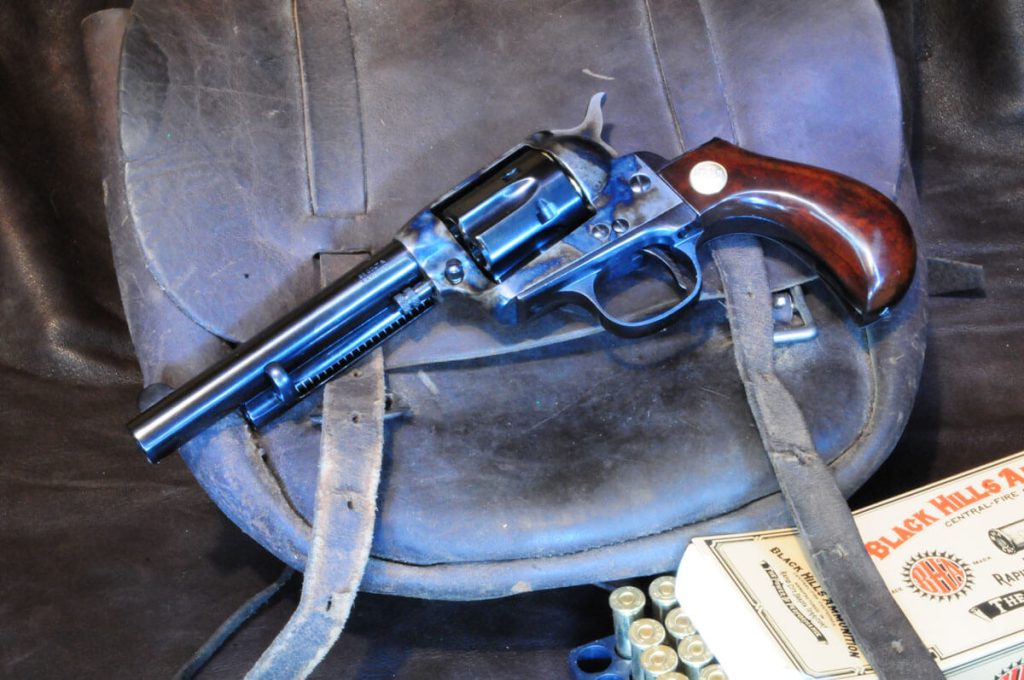
DESIGN
Patterned to look like Colt’s classic 1877 double-action revolver, the Cimarron Lightning’s most eye-popping feature is its distinctive “Bird’s Head” grip. It’s a curvaceous handle that eliminates the heel present on most 19th century revolvers while adding a small saw-handle type spur atop the grip. The grip was likely ahead of its time; if you pay attention you’ll notice many similarities to modern, small-frame revolver grips. The handle felt good in my hand and very comfortable while shooting, though I felt like muzzle jump was a bit higher than with a classic peacemaker grip. I believe that was because, sans the standard heel, which I usually keep my pinky finger locked under to help with recoil management, the barrel was freer to rise during recoil.

ACTION
The Cimarron Lightning’s design does feature one radical departure from Colt’s classic ’77 revolver, having abandoned the original (and very problematic) double action in favor of a significantly more reliable single-action design. This also renders the revolver kosher for Cowboy Action Shooting. Crisp, tight, and smooth, the action cycles and feels just like a nice single-action peacemaker. And just like a classic peacemaker, the action does not feature a transfer bar mechanism – meaning that you should only carry five rounds in the cylinder, leaving one chamber empty for the hammer to rest over. (Theoretically, should the hammer rest over a live cartridge and be dealt a hard blow from aft-ward, it could detonate the cartridge, resulting in an accidental discharge.)

FIT, FINISH, AND FUNCTION
Fit and finish on the little Lightning revolver were very good. One-piece walnut grips grace the handle, contrasting nicely with Cimarron’s deep, richly-blued metalwork and beautiful pre-war-type color casehardening, making the sixgun “pop” with pleasing visual authority. The only “thing” I found during my testing (I call it a thing because it doesn’t qualify as an issue) is that ejector rod function was a bit rough. That’s not to say that it didn’t work – it did – but it didn’t work as smoothly as I would have liked. Otherwise, everything worked flawlessly. The loading gate was tight and crisp, the action cycled perfectly, and the trigger broke crisp and clean.
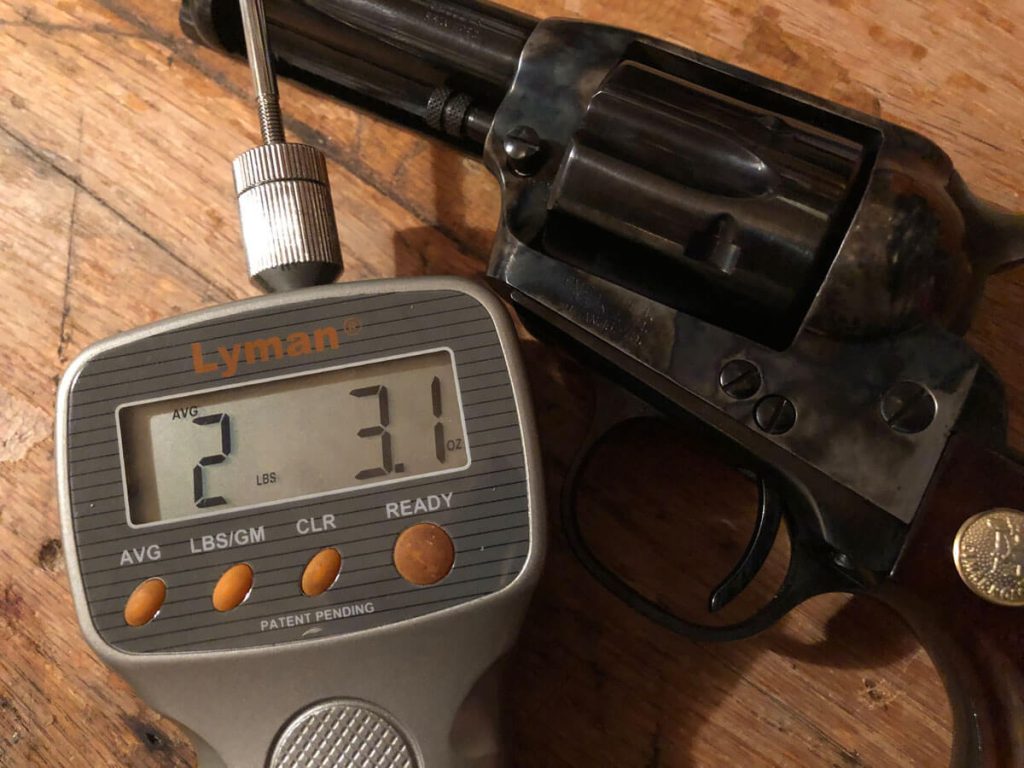
SIGHTS
The Lightning’s sights are fixed, and very traditional. A nicely machined groove atop the frame forms the rear sight, and the front sight is a simple round-profile blade. During testing, I found that most ammo impacted about two inches low and one inch left at 10 yards – pretty standard deviation for a traditional fixed-sight revolver. The elevation is easy to adjust with a file, just remember there is no going back once you’ve removed metal. Take your time, file the front sight down (to bring your impact up) very carefully and cleanly, and once you’ve reached your desired adjustment, polish and touch up with a bit of cold blue. Windage is a bit trickier, and might best be left to a qualified gunsmith. If you opt to attempt it yourself, you can use a crescent wrench tightly fit to the front blade, and bend the blade ever so slightly opposite the direction you want your impact to go. In other words, if you need your impact to move right, bend the front blade left. But proceed with caution, or you can bugger up your beautiful revolver.
Authors note: Cimarron advises against bending the front sight, and will correct the problem for a reasonable fee if you send the revolver to them.

SAFETY
Per standard sixgun design there is no safety, per se, on the Lightning revolver. However, the handgun does feature a unique hammer stop mechanism, created by over-seating the cylinder pin. Once activated, the hammer will contact the cylinder pin instead of the primer, rendering the revolver incapable of firing. To engage this safety mechanism simply depress the cylinder pin retainer, and push the cylinder pin rearward until the cylinder pin retainer engages the second groove in the pin. To deactivate, reverse the procedure.

BARREL LENGTHS AND CHAMBERINGS
My Lightning revolver is chambered in .38 Special and features a 4 ¾-inch barrel. The sixgun is available in 3 ½”, 4 ¾”, 5 ½”, and 6 ½” iterations, and chambered in .38 Special, .41 Colt, and .22 Long Rifle (10-round cylinder). “Dueling” Lightning models are also available with dual interchangeable cylinders chambered in .32-20 and .32H&R. Overall weight on my model is 1.83 pounds.

CONCLUSION
The Cimarron Lightning revolver is a well-made, fairly accurate six-shooter well suited to Cowboy Action Shooting, plinking, and daily use. Its striking appearance will be a conversation starter, and with its light(ish) weight and rounded grip, it would be comfortable for everyday carry.
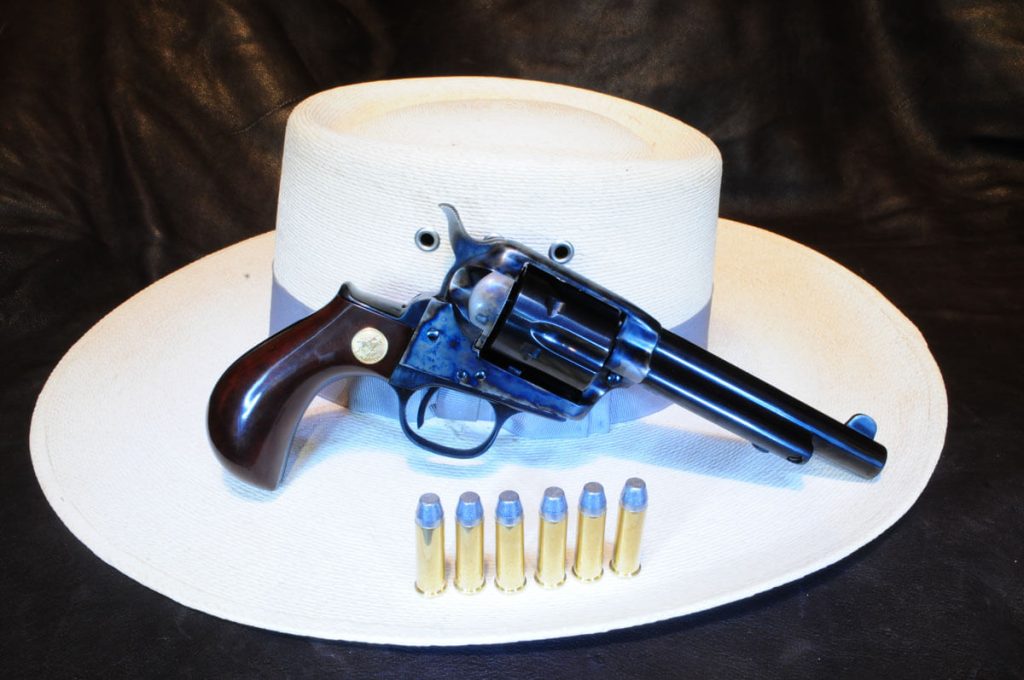
ACCURACY TEST RESULTS
Note: Testing was performed from a rested position at 10 yards, with a Shooting Chrony chronograph set 10 feet in front of the muzzle. Three, 5-shot groups were fired with each ammunition, the results added together and averaged.
| Manufacture | Bullet | Velocity (FPS) | Accuracy (Inches) | ES | SD |
| Hornady | 110 Gr. FTX | 966 | 1.25 | 39 | 13 |
| Winchester Defender +P | 130 Gr. JHP | 902 | 0.95 | 87 | 25 |
| Black Hills +P | 100 Gr. HoneyBadger | 1063 | 1.30 | 103 | 26 |
